 The problem-solving model offers a great way to help children work through their differences.
The problem-solving model offers a great way to help children work through their differences.
The focus of the problem-solving approach is to support children to develop skills in;
- Listening
Reflecting what they’ve heard
Identifying and expressing their feelings and
Mutual problem-solving.
Using this approach, parents and teachers find that conflicts dissipate much faster and children eventually learn to work it out amongst themselves respectfully with little or no adult help.
Instead of being a referee who dictates what the children should do to end the conflict, a parent or teacher can intervene as a supportive mediator.
A referee does a great job of keeping things fair in a soccer or rugby game, but simply restating the rules, deciding who’s right and who’s wrong and dictating the outcome isn’t a very kind or constructive approach for parents or teachers to use in helping children who are facing an emotionally charged conflict. And it doesn’t help them develop conflict resolution skills. Unlike the referee, a mediator, however, is more like the marriage guidance counsellor who calmly and patiently listens to both sides and facilitates problem-solving.
Most parents and early childhood teachers are very impressed with how much more responsible and creative children are at owning and solving problems when given the right support, encouragement and guidance.
The most important factors in responding to sibling rivalry are:
- for the parent to speak with an even tone that shows support; “let me help kids” as opposed to “hey you two, stop that!!”
- to show them both that you can see they both need and deserve your non-critical support, “I can see you’re both feeling upset”
- facilitate them taking turns to tell their side of the story- the younger the child, the less time they’ll be able to wait while listening
- reflect back what you hear as neutrally and positively as possible. “he never shares anything with me, he’s so mean!” can be reflected as “you’re really frustrated that your brother doesn’t want to share his lego with you”.
- Help them brainstorm for solutions: “hmm, so you want to play alone with your lego and you Tom also want to play with the lego, that’s a problem. I know you kids can resolve to figure this out, what are some ideas?”
If either or both children are upset, each child will need:
- to feel connected to a caring adult,
- to be listened to with patience and empathy,
- to feel secure that they won’t be blamed or punished before they can let down their defenses and be honest,
- to feel understood and respected by the adult.
- to have their feelings heard and accepted.
As each child feels and trusts the support and empathy of the adult, they can start to:
- offload their painful feelings,
- gain a better understanding of their own feelings that led to their actions/ words,
- think clearly again,
- have a greater ability to listen to their sibling with their parent’s calm mediation,
- understand and genuinely care about their sibling’s perspective,
- feel true remorse, understanding, greater self-awareness and wisdom that they can take further into future experiences of conflict.
Teach through re-phrasing:
Rather than criticising the child for using derogatory language “don’t you use that kind of language in this house”, you can re-phrase; e.g. child to sibling; “you’re stupid and mean, you did that just to hurt me”, parent; “it sounds like you felt like your brother intentionally wanted to hurt you and you feel very upset about that”, child “Yes, she DID do it on purpose to hurt me!” At this point, it’s tempting to try and stop your child from blaming their sibling, but instead, focus on giving them the message that their hurt feelings are being heard and accepted. Try to trust the process of listening and give both children lots of space to reach that place of actually feeling mentally and emotionally ready to make peace and resolve. Sometimes one or both children may need a bit of time before continuing with the resolution.
Listening heals.
The listening will allow each of them to get it all off their chest, to feel heard, understood and cared for. The parent can then look to the second child and interpret’ “your brother feels like you did it on purpose to hurt him, do you want to share what happened from your perspective?” Again, give messages of acceptance and support and stay non-judgmental. Being non-judgmental support both children to reach a similar state of acceptance and non-judgment. Once the hurt feelings dissipate, the need to blame also disappears!
Hold back your advice and solutions.
Try to resist the temptation to give advice and offer solutions or push them to find solutions or be remorseful too early while emotions are still high. When children are emotionally charged, they can’t and won’t be reasonable. They are simply not operating from the reasoning part of their brain, they’re in a highly emotional state, which is where you need to meet them and hopefully bring some sense of calm and safety, which will help them transition back to a more reasoning place. When painful emotions are present, they need help with their feelings before they can be reasonable. Trust that you’re listening will help them make their way back to feeling more reasonable and able to see the other’s point of view. They learn a lot from each other when supported to talk and listen through to the other side. You’ll notice lots of little but important misunderstandings being cleared up as you facilitate their sharing and listening.
Support them to problem solve.
Once both children feel heard, they often calm down quicker than adults expect. When parents first practice this, they often discover that their previously more controlling and less tolerant interventions had only fueled the sibling rivalry. Once both children have felt heard and begun to calm down, you can support them to problem solve with questions like “What are the possibilities?”, “are there any other ideas that neither of you have thought of yet?”.
Should they say sorry?
As well as looking for a solution to the initial problem, one or both children may need some support with resolving any hurt feelings that are still present from the conflict. Children under about 6, often don’t need this as they’re very in the present moment and let go of hurt feelings fairly easily when they feel heard and understood at least by their parent. But if you see that there’s still hurt sitting with one or both, once they have calmed down, you can bring in questions like “what do you need to feel better?” or “is there anything that either of you wish you had done differently?”. When a child shows regret “I wish I had used my words rather than kicking you” allows the other to feel that remorse is being expressed. It’s an easier step for a child to make if they’re not ready to honestly say “I’m sorry”. If each of them express remorse, “I wish I had …” or “next time I’m going to … instead” or “I’m sorry I called you a …” it allows them both to feel like they’ve put it right and releases them from feelings of guilt, shame or hardness, so it’s good to support them in this process.
Will they feel pressurised to be remorseful before they’re ready?
When your approach is caring and supportive, children won’t feel forced to express remorse before they’re ready, which is much healthier. When a child’s focus is on saying sorry to please the adult and escape their judgment, this can really cloud their natural process of reaching a place of true remorse as a result of being understood, truly hearing the other’s perspective from a non-defensive place and clearing up any misunderstandings.
Supporting children to develop their empathy, integrity and authentic and non-aggressive expression of their feelings is the way to go! If they do say “Sorry!!!” with anger still in their voice, they may (or may not) be trying to get to that sorry place, but they’re just not there yet, which is ok. You can tell them “it’s ok if you’re not ready to feel sorry, is there anything else you need to help you feel better again?” “What do you need to feel at peace again” or “is there anything I can do to help you feel better again?” are good questions in showing your genuine care and lack of criticism. Your child may say something like “I want you to promise that you use your words rather than snatch. You can then affirm what’s been offered and asked for – that everyone agrees to use their words rather than snatch.
There’s always more information needed.
Resist the temptation to take the first story literally and accuse the other child; e.g. “why did you hurt your brother?”. Resist the temptation to make excuses for one but not the other “she’s just having a bad day today because ….” That gives the message that one child’s feelings are more important and valid than the other. You may see exactly what’s going on, but it’s always more constructive for children to work it out themselves through hearing each other’s thoughts and feelings rather than being told what they should think and feel.
Trust that they want to come back to peace with each other.
A good question is “What do you guys need to do to come back to peace with each other?” Most of the time when I ask this question, they jump straight to “I’m sorry I ….”, “I’m sorry too, let’s play again “. The question reminds them that they want to be at peace and reminds them that it’s something that they can just choose. Generally, when they fight, they both feel bad, feel guilty, feel hardened towards themselves and other and want somebody to help them resolve the bad feelings so they can feel happy, innocent and free again.
Also read The peaceful parenting approach to kid’s conflicts
When to intervene?
When fighting between siblings is charged with some very strong emotions, the children generally need help a lot earlier than they get it. Parents often either ignore the conflicts until they’ve escalated to a pretty bad state or intervene in a judgmental and controlling way dictating the solutions, which contributes more conflict to the conflict, more anger to the anger.
Prevention is often the best remedy.
If you sense that conflict is brewing, perhaps you identify your child using a tone that shows some upset, try not to take it personally, but instead see that your child may be signalling that they need to feel re-connected with you or within the family in general. When frustrations mount, kids tend to take it out on each other (or their parent), it’s not intentional, it’s just that their tolerance becomes very low and anything can set them off. If you notice they’re out of sorts and invite warm connection and inclusion, you can often dissipate the problem before it escalates.
You may sense that they need to express some built-up frustration, you can invite them to show you what’s hard; “it sounds like you’re very frustrated, can I help?” or “you sounded very stressed Lynn, are you ok?” or “would you like to explain to your sister what you need her to hear/ understand/ not do?” Or just move in and give the stressed child some connection by offering to do an activity with them, perhaps chatting about the day, offer to help them with their homework, etc. This connection will generally dissipate stress and feelings of frustration and give the child the space to express anything they need to express.
Hatred or contempt.
If fighting between siblings is very intense to the point of regularly (as opposed to rarely) expressing hatred, this is generally symptomatic of a backlog of deeply painful unresolved feelings that need attention. It’s important that children aren’t shamed for such feelings, but get the help that they’re no doubt desperate to receive. In such cases, emotions may be way too volatile for the children to cope with direct confrontation with each other, even when facilitated with this respectful approach. They will each need to feel seen and heard and understood and to hence feel safer before tackling resolving conflicts constructively with their sibling. Instead of mediating with both present, you may need to give each of them the support and listening they need separately.
When a child storms off
If a conflict arises and one child storms off, rather than putting pressure on them to talk it through, decide which one you will go to first (take turns from one conflict to the next), tell the other child that you want to help them and will be back in a few minutes, go and spend time with your child just focusing mostly on listening to their perspective. Put aside the need to sort out the current problem (if possible) until your child has started to feel calmer and settled and is at least feeling connected to you again, which helps build up their emotional capacity to actually want to resolve with their sibling. If direct confrontation is still too much, you can mediate by speaking to each of them on the other’s behalf. If there are very painful emotions between your siblings and little affection between them, think about gaining extra support from a safe close person to the family or a professional like myself.
The parent’s childhood experiences.
For most parents, sibling conflict elicits painful emotions because the last thing in the world we want to see is someone hurting our children and when they hurt each other, or the older/ stronger one hurts the younger one, it can be very hard not to become very angry about it, it’s normal and understandable to become angry. The more empowered you feel as a parent with constructive skills to help your child, the less powerless, hence the less angry you will be. It’s one of those big trigger points for most parents. The feelings that come up for the parent are very interesting feelings to explore with a caring listening partner who can support you to vent and get in touch with the deeper feelings in you that are brought to the surface at times of conflict between the children. Conflict among your children can trigger conflicts from your family of origin; it can trigger the frustration of not being allowed to argue in your family, it can bring up unresolved hurts and frustrations around being overpowered by a sibling and not receiving the empathy, understanding and support that you needed to truly resolve those tricky problems and associated tough feelings.
It gets better!
Be assured that as you practice these approaches more and more, the relationship between your children will not only become happier, lighter and calmer, but their ability to resolve their own conflicts will build over time. All your hard work will have really paid off when you overhear them resolving conflict using the same steps and language that you’ve taken them through the previous fifty times. Meeting our children’s needs includes meeting their need for constructive help with their conflicts with siblings and friends. It’s hard enough for adults to work their way through misunderstandings, for children, it’s very hard and causes them lots of frustrations to not be able to escape out of the conflict, but to keep digging themselves in deeper and deeper. Then when children get in trouble for fighting, it can be quite overwhelming for them because now they’re in conflict with their sibling and their parent is “fighting” with them!
According to Dr. Aletha Solter;
the positive outcomes of mediating children’s conflicts and helping children problem solve are that the children:
— learn good listening skills.
— learn to understand another point of view (cognitive decentering).
— learn to empathize with other people.
— realize that their needs will be met; they do not feel resentful towards each other or adults.
— acquire creative problem-solving and thinking skills.
— develop self-confidence and self-esteem.
— become responsible and self-disciplined.
— learn valuable mediation skills that they can use as adults.
When a lot of hurt has built up
Sometimes, you can use all these great mediation skills and more and your children are still angry with each other. They may not want to, or be able to, come to peace, they may lose patience with the process and want to storm off and be on their own, go playing to distract themselves or whatever else. You can encourage participation, but it’s important to never force children to stay with the mediation if they seem unable to. You want their experience of you mediating their conflicts to remain positive and constructive, rather than something they learn to dread.
Rest assured that at least you haven’t added to their conflict and they’re learning great skills. When the children can’t seem to resolve their conflicts, it can often be their way of expressing “you just don’t understand” because perhaps the problems are bigger than the current argument. This shows you that there may be a backlog of deeper hurts that they need one on one help with without having to worry about hurting the feelings of the other or feeling hurt even more by their sibling. Especially if your child has a trauma history, you may need to access parent coaching or other professional help. But you can start by giving them lots of time and space to offload their frustrations in a private space when you have one on one time together.
Children often start to take some of these steps themselves.
Using these skills, how we respond to our children’s conflicts is a perfect role modelling of conflict resolution skills. We listen respectfully. We reflect what we hear. We seek to understand. We take responsibility for our frustrations. We show empathy. We aim to support rather than criticize. We show great faith in our children’s ability to work things out. We empower rather than overpower. Children won’t and they can’t respond to siblings with respect and consideration until they gain the direct experience of what that looks and feels like.
Understanding some of the underlying feelings and unmet needs that drive sibling rivalry can help parents remain compassionate and patient.
Some of the many factors that contribute to sibling rivalry are;
- feelings of resentment or jealousy,
- your children’s needs for your attention,
- the modelling and the tensions generated when tensions build between parents,
- the child’s inability to understand another’s point of view,
- frustration at being less skilled than a sibling,
- feeling excluded,
- a child’s need to release pent up feelings, which are easy to take out on a sibling,
- child redirecting anger towards a parent at a sibling to avoid conflict with the parent/ teachers/ other authority figures,
- acting out how they’ve been made feel,
- competitiveness,
- There may be a need for information, and the list goes on.
If children are not accessing enough of the attention, empathy and support they need
By the very nature of parenting in the nuclear family, parents are stretched to the point of being very stressed. Parents struggle to meet as many needs as possible in the day, and understandably children build up frustrations when they have emotional needs that the parent can’t meet. Without making themselves or their child wrong, it helps when parents learn to be honest with themselves about their limitations and accept that unmet needs lead to frustrations, and these it’s unavoidable that children will take their frustrations out on each other, to one extent or the other. Not gaining enough of the empathy, the connection and attention they need reduces the child’s ability to cope with stress and hence leads to conflicts among siblings.
When children experience the stress of punishments, force or criticism
Children in the family will treat each other in similar ways that their parent treats them. They are learning first and foremost from the modelling of their parents and other adults in their world. When the child is frustrated, it’s difficult enough for them to manage their impulses to hurt their sibling, but when one or more parent takes their anger and frustrations out on the children, children are taught “this is what we do in our family”.
Anger in the family
Furthermore, when there is a conflict between the parents or other family members, the children will pick up the tension and offload it where they can. Anger can be a hot potato in families. Children will generally take their hurt out on each other unless they’re receiving help with those difficult feelings. The help they need is loving acceptance, understanding, validation, listening and empathy for their feelings of frustration.
Children feel safer during child-focused one on one time.
When you can see there’s a backlog, then you can make time to have a chat with each child during some one on one time and ask them questions that help them identify, feel, explore and express their backlog of resentments and just keep listening and empathising and opening and helping them deepen and perhaps the big stuff like “you’ve always loved him more than me”, or “it’s not fair that everyone thinks he’s so clever/ intelligent/ fully/ …. And everyone thinks I’m just boring”. These big beliefs can pervade experiences and interactions every day with other people, without the child necessarily being able to identify the “pattern” and without them having any ability or skills to release those deeply painful feelings and consequent beliefs. They need the help of a loving, patient, caring adult to help them work through this big stuff.
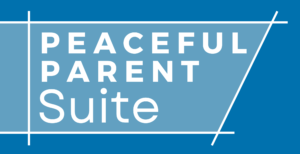 If you need support in your journey of adopting peaceful parenting strategies in your family, check out our Peaceful Parenting Resources for Sale which includes eCourses, forums, parent-child scripts, Resource Kits, Relationship and Nutrition advice and more.
If you need support in your journey of adopting peaceful parenting strategies in your family, check out our Peaceful Parenting Resources for Sale which includes eCourses, forums, parent-child scripts, Resource Kits, Relationship and Nutrition advice and more.
You might also like to read:
The peaceful parenting approach to kid’s conflicts
Aggression – why children lash out and what to do
Helping children when they bite, hit and push
Sibling struggles
Can you maintain healthy boundaries? Are you modelling healthy boundaries?
Recommended books: (all available on our books page)
Siblings without Rivalry By Adele Faber, Elaine Mazlish
Parent Effectiveness Training by Thomas Gordon
Guiding Young Children by Eleanor Reynolds

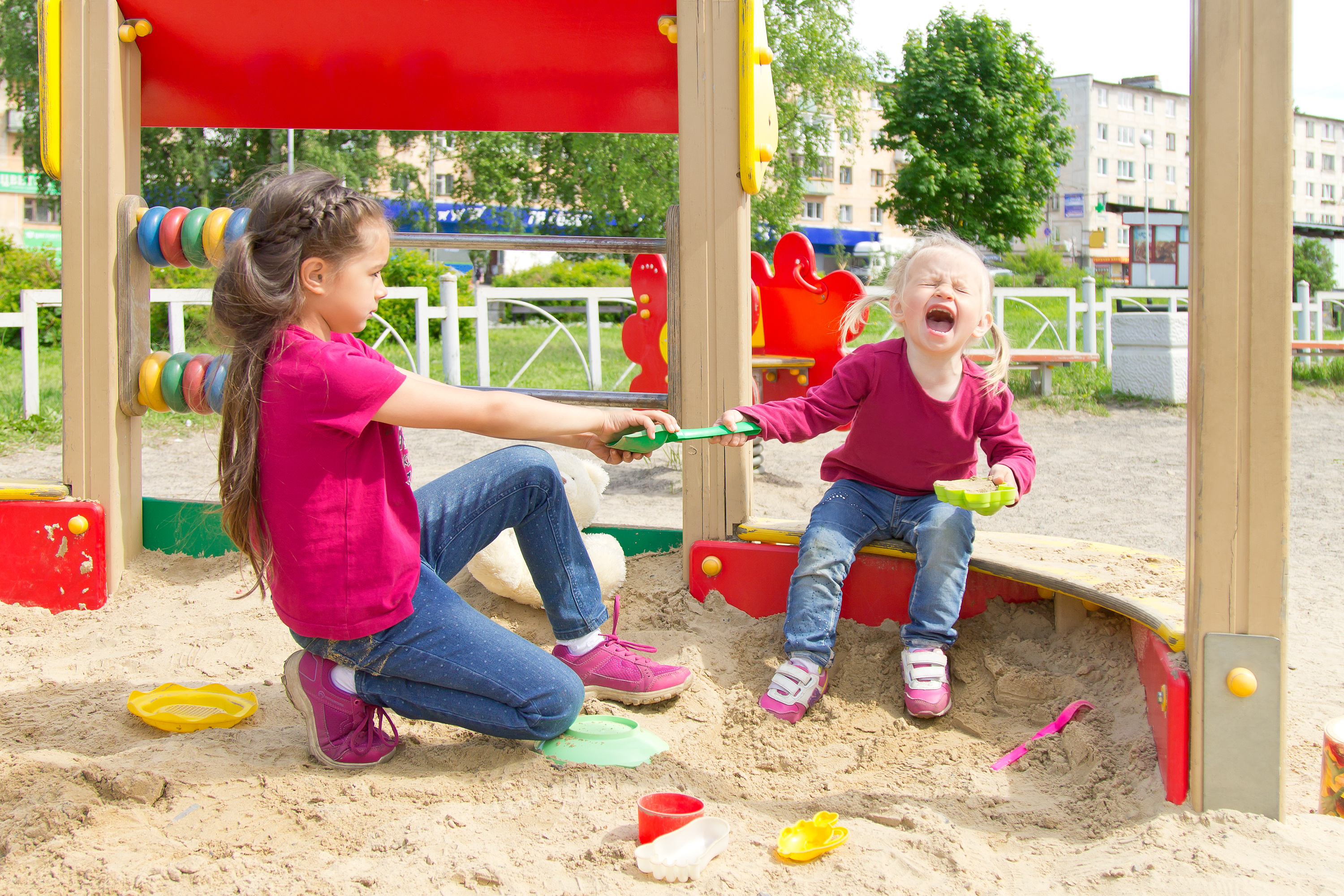
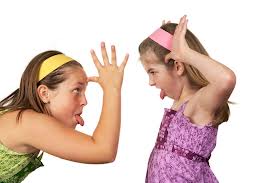
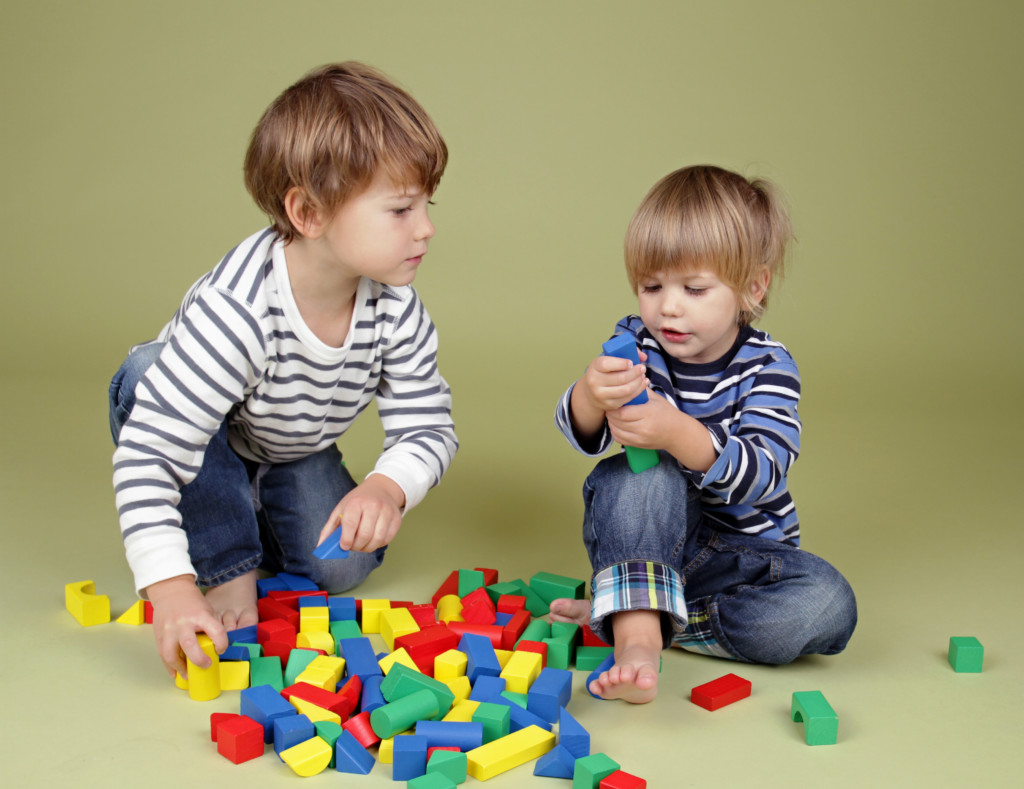

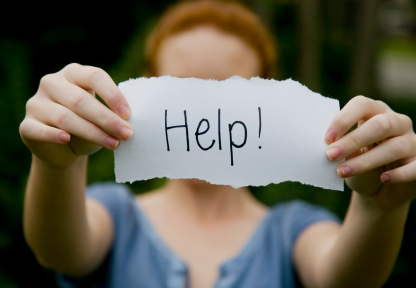
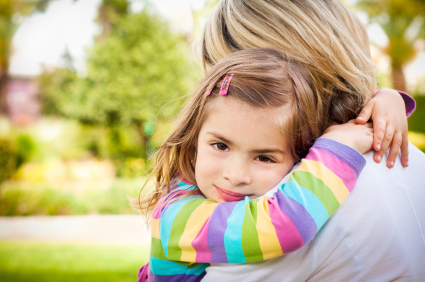

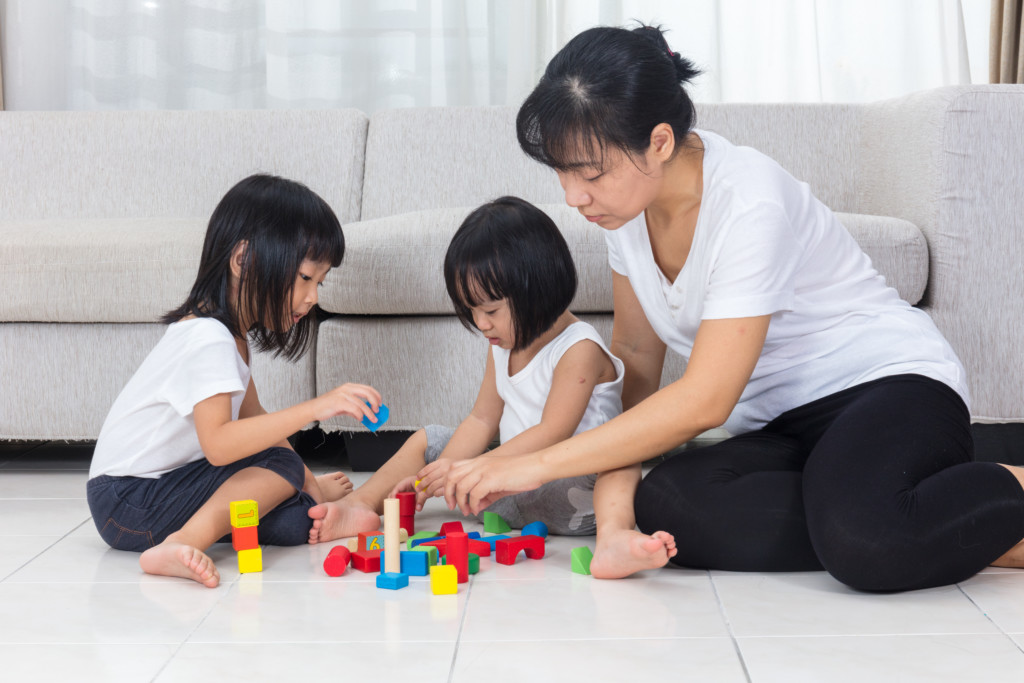
[…] “She’s always so mean to her sister“. We might say “It’s hard when our kids fight, hey. So hard for everyone”. This kind of reframing diplomatically shows more empathy for all […]
[…] If we want a big sibling to learn to manage that aggressive impulse and say “I’m angry that you broke my Lego. Do you want to play with this instead?”, then the child needs to be on the receiving end of their wrongdoings being repeatedly responded to with clear non-attacking reflection. Along with problem-solving possible solutions. […]